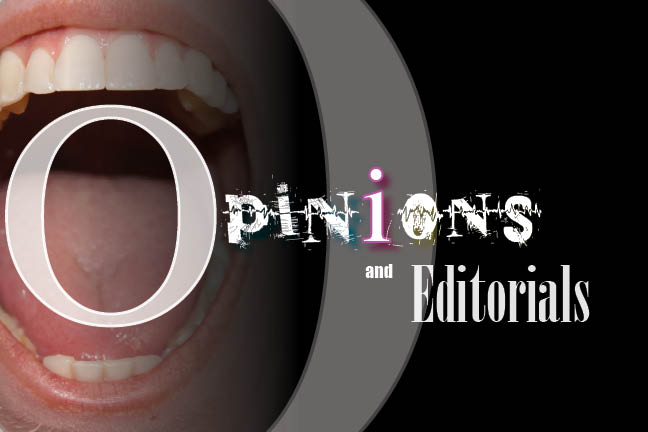The purpose of this column is to make the reader aware of current events in politics and media and to explain the facts from both sides to get a real picture of the argument instead of having message skewed through mainstream media. This is one man trying to relate to college students the hot issues of the world so as to make the information for accessible. The column will present an opinion but will do the it’s best to only use opinions supported by lines of evidence.

Patrick Olds
– Opinions Editor –
Leaders cannot rule effectively by consensus. Moreover, a person in leadership, especially in the United States government, has a responsibility to govern through the representation of values and morals that each politician based their campaign on.
Very plainly, it is not an effective way of governance to base one’s opinion solely on the current general consensus of the public. There are many flaws with that way of leadership or lack thereof.
Recently, 2012 Republican hopeful Donald Trump praised current President Barack Obama because he took into account the public opinion and based his decisions on how the country felt about certain issues. In the same breath, Trump bashed former President George W. Bush for his failure to lead based on perceived public consensus.
A common misperception of how the U. S. government is set up has seemingly overtaken the reality of the actual governmental setup. The U.S. is a representative democracy, meaning that our country is a mixed bag of representation and democracy. We have the ability to vote on single issues and constitutional amendments while also holding the power of the election of representatives that end up making most of the decisions for us.
We carry a tremendous responsibility to hold our leaders accountable for their actions and votes. There is a real problem within the country when leaders have a better chance of getting elected just because they are an incumbent. It should not matter that they have “experience” within government. Very realistically, that “experience” improves their odds of corruption from an entity, government bureaucracy, which seems to go unchecked by the voting population year after year.
Now the problem with Trump’s opinion, of course, is that there is no real way to measure consensus of the public. The greatest tool we have is public polls and the comparison of one against the others. That might seem like an effective way to gauge the public’s opinion on a specific issue, but other factors remain.
The media are the proverbial drivers of public perception and, as this column has pointed out previously, when a large portion of these so-called reporters and journalists have an unhidden bias for one side — then there isn’t a truly independent press. If the media have agendas other than reporting — “Houston, we have a problem.”
It is very easy to contrast the way the media treat each of the past two presidents. Obama receives the benefit of the doubt while Bush was sold as someone who couldn’t possibly have success. Watch when tuning into the news, if something bad occurs or a decision from Obama turns out to be a bad one, check to see if they excuse or give reasons for him instead of holding him accountable.
In turn, this type of reporting has an adverse effect on the voting public. The perception can be much more positive for a specific leader when he is supported by a supposedly “independent press.” While, on the other hand, it can be damaging to the perception of a leader when he or she can’t seem to make a good decision.
Leaders are more effective when they lead by the values and morals that got them elected rather than based on fragile public opinion.










